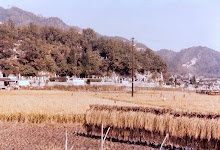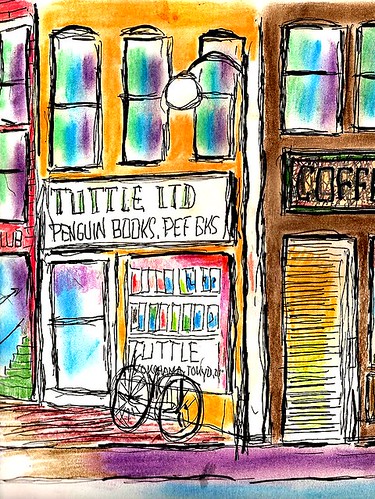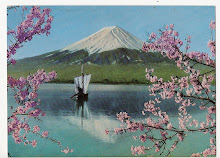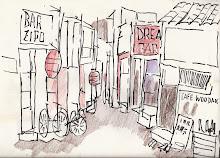TUTTLE BOOKS WAS FOUNDED BY CHARLES E. TUTTLE, A U.S. ARMY OFFICER ASSIGNED TO GENERAL MAC ARTHURS STAFF DURING THE OCCUPATION.
He arrived in Tokyo in October 1945, expecting to take charge of the library of the Diet of Japan (as he had been ordered), only to find that General Douglas MacArthur's staff had changed his assignment. He spent the next two years helping the Japanese newspaper industry.
Tuttle founded his publishing company in Tokyo in 1948, with the mission to publish "books to span the East and West."
Read the information furnished by Wikipedia for a more detailed account on the founding of TUTTLE BOOKS in Japan.
en.wikipedia.org/wiki/Charles_E._Tuttle
_________________________________________________________________________
Many Saturdays in Yokohama began with a sketching jaunt to some new area I had not seen. After a few hours of sketching, we would usually shop or browse for books in one of several small book stores in the Motomachi area. I cannot really remember if any of the shops had the name TUTTLE on the signboards, but many of the books inside were published by Charles E. Tuttle of Vermont. I thought it strange that a publisher out of Vermont would be publishing books on and about Japan. My friend told me she had been aware of the Tuttle name in books since she first began studying English when she began elementary school in the early 1950s. English became a required course in the Japanese educational system throughout the post-war years and was still a required course in the early 1960s.
YOKOHAMA PICTURE SHOW

Shot with my Petri in Yokohama 1962
RICE FIELD IN JAPAN 1962

I took this with my PETRI in Kanagawa Prefecture
Thursday, April 5, 2012
MEMORIES OF TUTTLE BOOKS IN JAPAN
Subscribe to:
Post Comments (Atom)













No comments:
Post a Comment